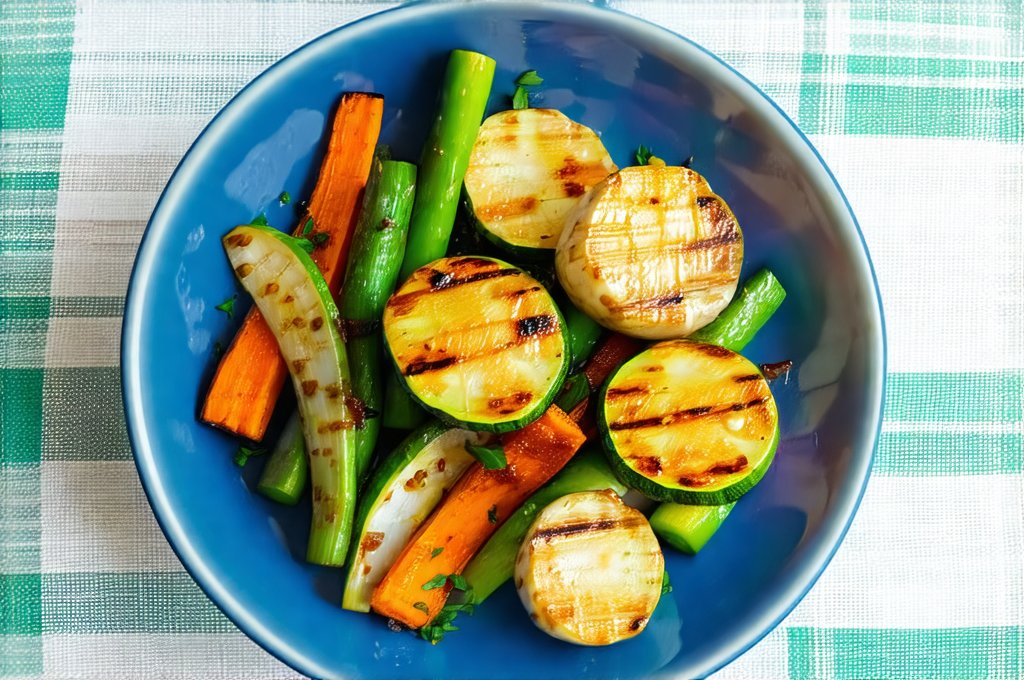Bloating is one of those incredibly common experiences – almost universal at some point in our lives – yet it’s often shrouded in mystery and discomfort. Many people struggle with persistent bloating, feeling like their abdomen is swollen, tight, and even painful after meals. While occasional bloating is normal (often due to gas production from digestion), frequent or severe bloating can significantly impact quality of life. It’s important to understand that bloating isn’t a disease itself but rather a symptom, potentially stemming from various underlying causes ranging from dietary choices and food sensitivities to digestive disorders and even stress levels. Often, simple modifications to our eating habits – specifically focusing on easily digestible foods like cooked vegetables – can make a world of difference in reducing this discomfort and restoring a sense of well-being.
This article will explore the power of an anti-bloating meal plan centered around cooked vegetables as a cornerstone for digestive health. We’ll delve into why cooking vegetables is beneficial, which vegetables are particularly gentle on the gut, and how to build a delicious and satisfying meal plan that minimizes bloating while maximizing nutritional intake. It’s about finding balance – enjoying food without fear of uncomfortable side effects. This isn’t about restrictive diets or eliminating entire food groups; it’s about making informed choices and adopting strategies to support optimal digestion and reduce inflammation, leading to a happier, healthier gut. You might even find that an easy anti-bloating meal plan can help you feel significantly better.
The Benefits of Cooked Vegetables for Bloating Relief
Raw vegetables, while undeniably nutritious, can sometimes be harder on the digestive system than their cooked counterparts. This is because raw vegetables contain higher levels of fiber and certain compounds called FODMAPs (Fermentable Oligosaccharides, Disaccharides, Monosaccharides And Polyols). While fiber is essential for overall health, excessive amounts, particularly in sensitive individuals, can contribute to gas production and bloating. Similarly, FODMAPs are poorly absorbed by the small intestine in some people, leading to fermentation in the large intestine and subsequent bloating, gas, and discomfort. Cooking vegetables breaks down some of these fibers and alters the structure of FODMAPs, making them easier to digest and less likely to cause symptoms.
Furthermore, cooking often increases nutrient bioavailability – meaning your body can absorb more of the vitamins and minerals present in the vegetable. For example, lycopene in tomatoes becomes more readily available when heated. This is especially important for individuals with compromised digestive function who may struggle to extract nutrients from raw foods effectively. Different cooking methods also impact digestibility; steaming or gently sautéing are generally preferred over frying, which can add unhealthy fats and further irritate the gut. Ultimately, incorporating cooked vegetables into your anti-bloating meal plan provides a gentle and nourishing way to support digestion and reduce discomfort. If you’re looking for more structured guidance, consider exploring a 7-day anti-bloating meal plan with a low-FODMAP focus.
Cooking doesn’t have to mean sacrificing flavor either! With creative seasoning and preparation techniques, you can create incredibly delicious and satisfying vegetable dishes that are both gut-friendly and enjoyable. Think roasted root vegetables with herbs, steamed broccoli with a squeeze of lemon juice, or sautéed spinach with garlic – all excellent options for minimizing bloating while maximizing nutrition.
Building Your Anti-Bloating Meal Plan
The foundation of an anti-bloating meal plan lies in choosing easily digestible vegetables and pairing them with other gut-friendly foods. Low-FODMAP vegetables are particularly beneficial, including carrots, spinach, zucchini, bell peppers, potatoes (white and sweet), and eggplant. These vegetables tend to be well-tolerated by most individuals with sensitive digestive systems. Lean proteins like chicken or fish, healthy fats such as avocado or olive oil, and gluten-free grains like quinoa or rice can further support digestion and provide sustained energy.
Avoid foods known to trigger bloating, such as beans, lentils, broccoli (in large quantities), cabbage, onions, garlic (although small amounts are often tolerated), apples, pears, and artificial sweeteners. Dairy products can also be problematic for those with lactose intolerance. It’s crucial to listen to your body and identify your individual triggers – what causes bloating for one person may not affect another. Keeping a food diary can be incredibly helpful in pinpointing these sensitivities. Hydration is also key; drinking plenty of water helps keep things moving through the digestive system and prevents constipation, which can exacerbate bloating. A gut-healthy meal plan utilizing seasonal ingredients may also be beneficial for overall digestive health.
Remember that portion control is important too. Even gut-friendly foods can cause discomfort if consumed in excessive amounts. Start with smaller portions and gradually increase as tolerated. The goal isn’t deprivation but rather mindful eating – paying attention to how different foods affect your body and adjusting your diet accordingly.
Gentle Vegetable Choices & Preparation Methods
Choosing the right vegetables is only half the battle; how you prepare them matters too. As mentioned earlier, steaming, sautéing, roasting, and boiling are all excellent cooking methods that break down fibers and make vegetables easier to digest. Avoid frying or adding excessive amounts of oil, which can irritate the gut.
- Steaming: Preserves nutrients and is gentle on digestion.
- Sautéing: Use a small amount of olive oil or avocado oil.
- Roasting: Enhances flavor and creates a satisfying texture.
- Boiling: A simple method, but be careful not to overcook.
Carrots are fantastic cooked, offering beta-carotene and gentle digestibility. Spinach, when steamed or sautéed, provides iron and vitamins without the raw fiber overload. Zucchini is another excellent choice – mild in flavor and easy on the stomach. Sweet potatoes, roasted with a sprinkle of cinnamon, offer a delicious and nutritious alternative to white potatoes. Be mindful of spices; while some (like ginger and turmeric) can aid digestion, others (like chili powder or excessive black pepper) may irritate sensitive stomachs. This is also where focusing on microbial diversity through your meal plan can be beneficial.
Incorporating Vegetables into Meals: Sample Ideas
A successful anti-bloating meal plan isn’t about separate “bloat-fighting” meals; it’s about seamlessly integrating gut-friendly vegetables into your regular diet. Here are some sample ideas to get you started:
- Breakfast: A smoothie made with spinach, banana (in moderation), almond milk, and a scoop of protein powder. Or scrambled eggs with sautéed spinach and diced sweet potato.
- Lunch: Grilled chicken salad with mixed greens (spinach, lettuce), carrots, bell peppers, and a light vinaigrette dressing. Quinoa bowl with roasted zucchini, eggplant, and a sprinkle of herbs.
- Dinner: Baked salmon with steamed broccoli and mashed sweet potatoes. Chicken stir-fry with carrots, bell peppers, and a gluten-free soy sauce alternative.
Snacks can also be gut-friendly. Consider carrot sticks with hummus (in moderation), a small handful of almonds, or a piece of cooked apple with cinnamon. Remember to stay hydrated throughout the day by drinking plenty of water or herbal tea. Individuals managing both GERD and IBS might benefit from a weekly meal plan specifically tailored for dual conditions.
Listening to Your Body & Seeking Support
Ultimately, the most effective anti-bloating meal plan is one that’s tailored to your individual needs and sensitivities. Pay close attention to how different foods affect your body and adjust your diet accordingly. Don’t be afraid to experiment with different vegetables, cooking methods, and seasonings to find what works best for you.
If bloating persists despite dietary changes, it’s important to consult a healthcare professional. Underlying medical conditions, such as irritable bowel syndrome (IBS), celiac disease, or food intolerances, may require further investigation and treatment. A registered dietitian can also provide personalized guidance and support in developing a sustainable anti-bloating meal plan that meets your specific needs. Remember, you are not alone in this journey – seeking help is a sign of strength, and taking control of your digestive health is an investment in your overall well-being. Those with GERD might even consider a GERD meal plan to further support their digestive health.


















